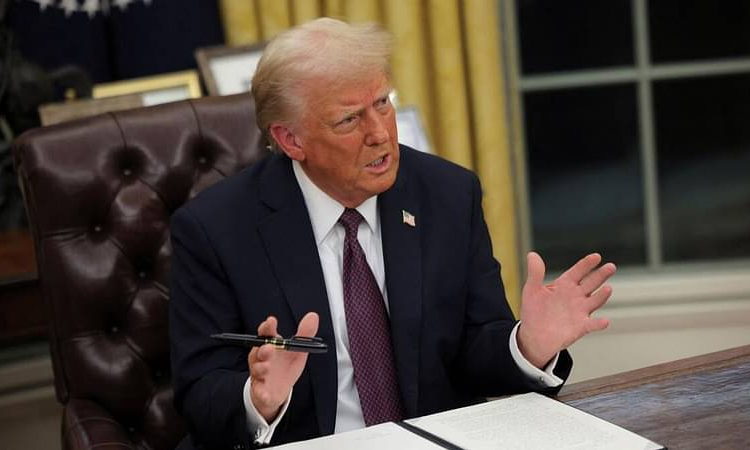United States President Donald Trump has rejected accusations that he was ruling like a dictator, insisting that his recent executive actions were driven by “common sense” and the need to restore public order.
In a video obtained by Reuters on Monday, Trump defended his new executive orders, which include tougher penalties for flag burning and the elimination of cashless bail. He said the measures were part of a broader effort to combat crime, particularly in Washington, D.C.
The orders came on the heels of Trump’s directive to the Pentagon to establish a specialised national force for the capital, trained and equipped to handle public order issues. Critics have described the move as authoritarian, warning of the president’s growing use of federal power in local policing.
Trump, however, dismissed the concerns.
“As you all know, Chicago is a killing field right now, and they don’t acknowledge it, and they say, We don’t need him. Freedom, freedom, he’s a dictator. A lot of people are saying, maybe we like a dictator. I don’t like a dictator. I’m not a dictator. I’m a man with great common sense and a smart person,” he said.
Earlier this month, Trump invoked the Home Rule Act to seize control of the Washington police for 30 days, citing “special conditions of an emergency.” He claimed the city is plagued by violent crime, homelessness, and lawlessness, asserting that it had been “taken over by violent gangs and bloodthirsty criminals.”
This narrative contrasts with Justice Department data showing that violent crime in Washington reached a 30-year low last year.
Trump’s tough-on-crime approach has not been limited to the capital. In June, he ordered the deployment of 2,000 National Guard troops to Los Angeles following unrest sparked by immigration raids on undocumented migrants in California. It was the first time a U.S. president had taken control of the National Guard since the 1992 Los Angeles riots, triggered by the police beating of Rodney King.





